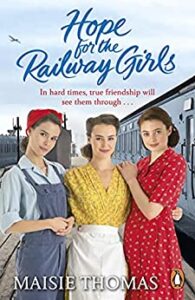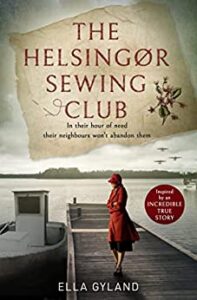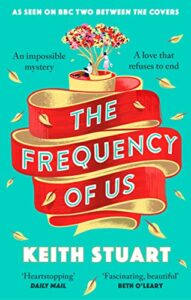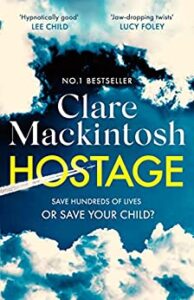Hope for the Railway Girls by Maisie Thomas
 I rarely follow a whole series, but the Railway Girls’ Second World War novels gripped me from the very first one. The characters are fresh and stand out from the page, there is tension, pathos and heartbreak, but more than that, there is joy – and that is important.
I rarely follow a whole series, but the Railway Girls’ Second World War novels gripped me from the very first one. The characters are fresh and stand out from the page, there is tension, pathos and heartbreak, but more than that, there is joy – and that is important.
So often I find sagas descend into what I call ‘it’s grim up north’ where the heroines’ hardships and battles become so impossibly dark the book is no longer a pleasure to read. What is so clever about Maisie Thomas’s work (both in this series and The Surplus Girls, which she writes as Polly Heron) is that the moments of high tension – and frankly apparently insoluble conundrums – are balanced by humour and happiness. And of course, they’re so very beautifully written.
In this fifth book we follow Alison as her new romance develops, Joan as she approaches motherhood, and a relatively new viewpoint character Margaret, who I found the most interesting of all. If you haven’t read the other books these names will mean nothing to you, but I urge you to go back and start at the beginning of the series. You have an absolute treat in store.
The Helsingor Sewing Club by Ella Gyland
 I love an unusual Second World War story and when I heard this one was set in Denmark I really wanted to read it. In part my choice was influenced by having loved Elizabeth Buchan’s I Can’t Begin To Tell You so much, but The Helsingor Sewing Club deals with a completely different aspect of Danish resistance.
I love an unusual Second World War story and when I heard this one was set in Denmark I really wanted to read it. In part my choice was influenced by having loved Elizabeth Buchan’s I Can’t Begin To Tell You so much, but The Helsingor Sewing Club deals with a completely different aspect of Danish resistance.
I didn’t know that, thanks to the Danish (albeit puppet) government, Jews were safe from persecution until 1943. Or that when the wrath of the Nazis descended on them the vast majority of Danes were prepared to help them to escape. This book provides a fascinating glimpse into that tiny slice of the country’s history and I loved it.
But no novel is ever a history lesson and Ella Gyland creates wonderful characters, not always brave, sometimes full of fear and even despair, but you love them all the more for it and root for them all the way. The whole story is fraught with tension and there are some truly heart-stopping moments too. My only slight reservation is that I thought the book was strong enough to stand without a contemporary narrative running alongside it, although I do appreciate most readers will have loved it exactly the way it is.
The Frequency of Us by Keith Stuart
 I’m a sucker for a great premise: in 1942 radio engineer Will regains consciousness after a bombing and realises the love of his life, Elsa, is missing. But he is told there was no one else living with him, and no records of her seem to exist.
I’m a sucker for a great premise: in 1942 radio engineer Will regains consciousness after a bombing and realises the love of his life, Elsa, is missing. But he is told there was no one else living with him, and no records of her seem to exist.
Seventy years later Will is struggling to cope and is refusing care, but he sees a kindred spark of loss in Laura and lets her in. It’s a prickly, difficult, unlikely yet beautiful relationship which evolves as strange things happen in the house compelling Laura to try to uncover what happened.
The flashbacks to Will’s wartime romance with Elsa provide relief from the unremitting greyness of Laura’s battle with mental illness and Will’s with old age. Whose mind is playing the most tricks? Clues are revealed, but none of them fit; indeed some of them seem completely contradictory.
Every thread is drawn together in the end, and although I found the ultimate answer deeply unsatisfying, I have to say I enjoyed the journey.



